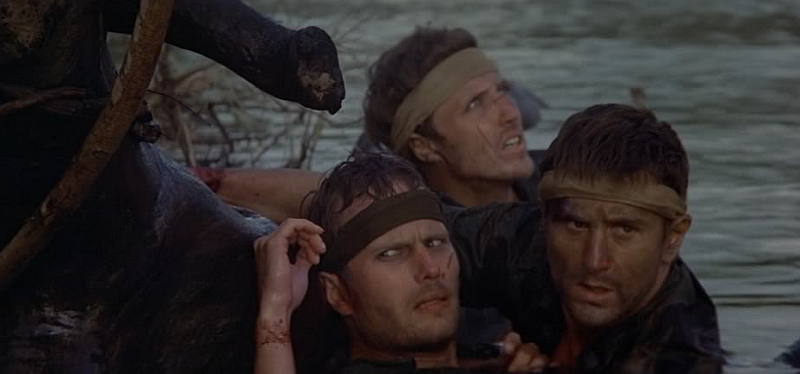
Michael Cimino’s The Deer Hunter (1978) remains a cinematic touchstone for a generation traumatized by the Vietnam War. The Deer Hunter‘s high regard has diminished slightly since, when reevaluations in the decades since its release have found Cimino’s treatment of the Vietnamese more than a little problematic. But for the less enlightened, The Deer Hunter remains a classic.
At this point Michael Cimino is probably better known for his epic Heaven’s Gate (1980), which ruined United Artists in the early eighties and is generally seen as the end point of auteurism’s dominance over the Hollywood studio system. In Heaven’s Gate Cimino expands his penchant for obsessive detail and his love for slow building melodrama that was already on display in The Deer Hunter. What makes Heaven’s Gate superior is how Cimino’s style rewrites the conventions of the western genre as well as the critique of capitalism that forms the primary subtext of the narrative.
The Deer Hunter, on the other hand, is a distinctly seventies style epic designed to be self-important and highly commercial, in spite of Cimino’s undeniable talents as a picture maker. In terms of narrative beats, The Deer Hunter bears an uncanny resemblance to Francis Coppola’s The Godfather (1972). Both films open with weddings where the cast is introduced in a series of long scenes that establish different relationships. After the weddings, it’s business as usual, which in one case is running a crime syndicate and in the other the war in Vietnam. The next major beat is the escape from the POW camp which coincides with the assassination attempt on Don Corleone. Robert De Niro’s return to stateside from the war mirrors Al Pacino’s journey to Sicily; both men find love, both men start to live new lives. Their new found existence is inevitably cut short, and both men return to see to “family”; in one case literally, the other figuratively. By the conclusion of both films the protagonists have lost themselves by living through a trauma that scars their masculine identities.
The Deer Hunter addresses men of its generation far more directly than The Godfather, yet both films romanticize a romantic notion of masculine fatalism that was a reaction to the social upheaval caused by feminism, civil rights, Watergate, and Vietnam. The Deer Hunter is a monolithic expression of the self perceived tragedy of being male in the seventies. All of CImino’s pomp and its contrasting humanism barely disguise the propagandist nature of his epic.
